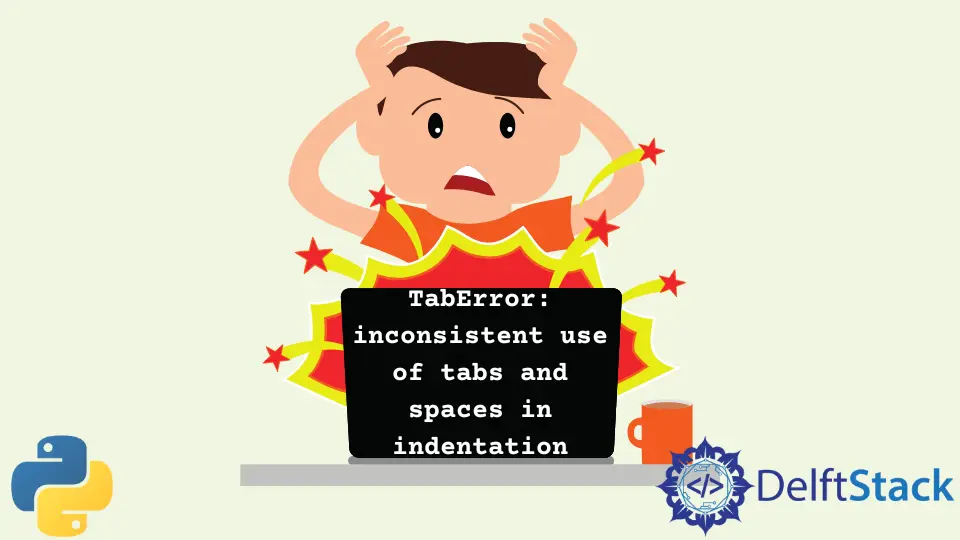修复 Python 中的 TabError
Fariba Laiq
2023年1月30日

Python 是使用最广泛的编程语言之一。与其他编程语言(如 Java 和 C++ 等)使用花括号表示代码块(如循环块或 if 条件块)不同,它使用缩进来定义代码块。
Python 中的缩进规则
根据定义的约定,Python 使用四个空格或一个制表符进行缩进。代码块以制表符缩进开始,该块之后的下一行代码不缩进。
前导空格确定行首的缩进级别。我们需要增加缩进级别来对特定代码块的语句进行分组。
同样,我们需要降低缩进级别以关闭分组。
Python 中 TabError 的原因
Python 使用四个空格或一个制表符进行缩进,但如果我们在编写代码时同时使用这两个空格,则会引发 TabError:在缩进中制表符和空格的不一致使用。在下面的代码中,我们使用制表符缩进了第二行和第三行,使用空格缩进了第四行。
示例代码:
# Python 3.x
def check(marks):
if marks > 60:
print("Pass")
print("Congratulations")
check(66)
输出:
#Python 3.x
File "<ipython-input-26-229cb908519e>", line 4
print("Congratulations")
^
TabError: inconsistent use of tabs and spaces in indentation
修复 Python 中的 TabError
不幸的是,没有简单的方法可以自动修复此错误。我们必须检查代码块中的每一行。
在我们的例子中,我们可以看到类似 ----* 的制表符符号。空格没有这个符号。所以我们可以通过一致地使用四个空格或制表符来修复代码。
在我们的例子中,我们将用制表符替换空格来修复 TabError。以下是正确的代码。
示例代码:
# Python 3.x
def check(marks):
if marks > 60:
print("Pass")
print("Congratulations")
check(66)
输出:
#Python 3.x
Pass
Congratulations
作者: Fariba Laiq
I am Fariba Laiq from Pakistan. An android app developer, technical content writer, and coding instructor. Writing has always been one of my passions. I love to learn, implement and convey my knowledge to others.
LinkedIn